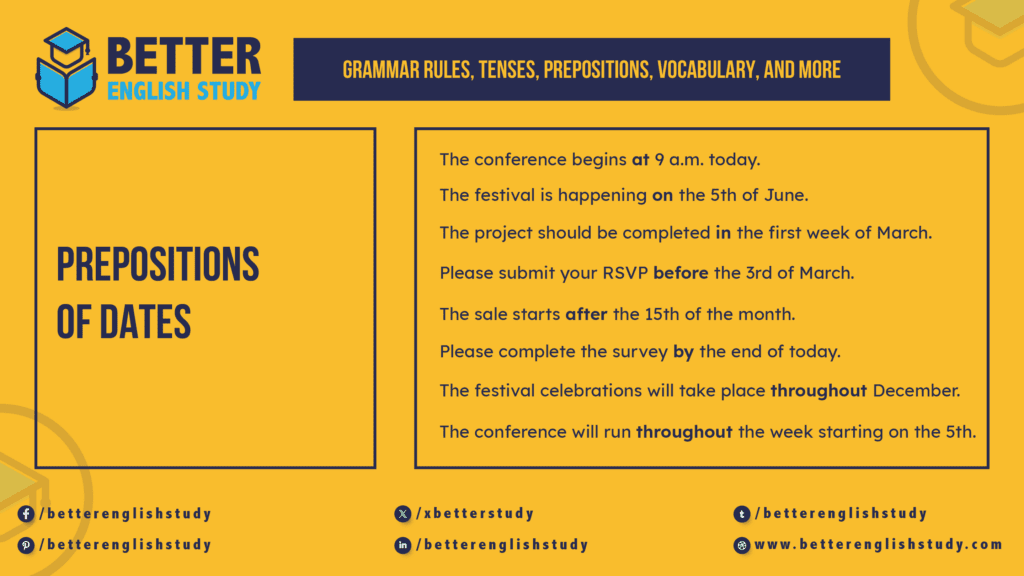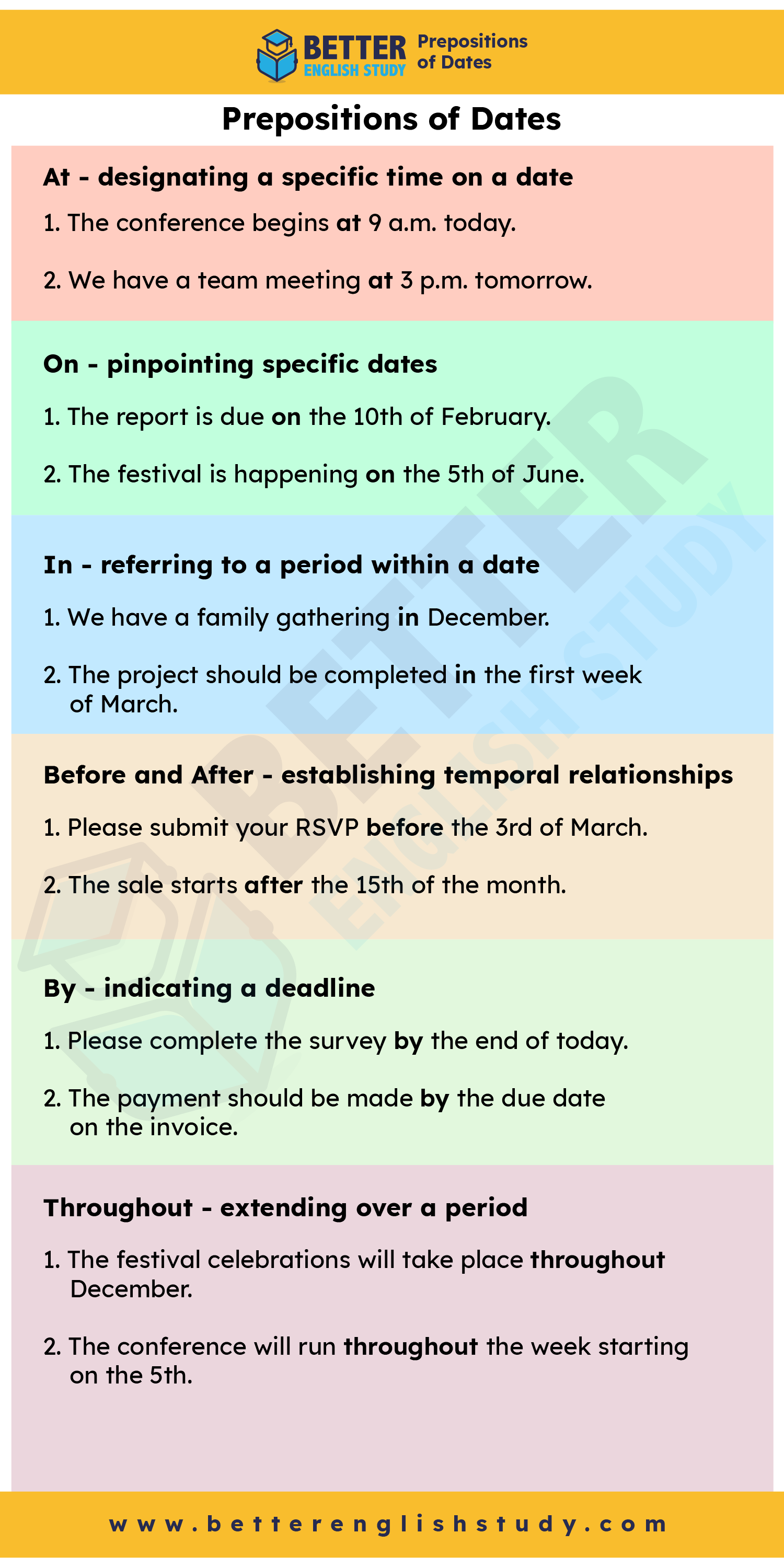
In English, when dealing with dates, the common question is: which preposition is appropriate before a particular date or time?
Understanding the nuances of prepositions like “at,” “on,” “in,” “before and after,” “by,” and “throughout” about dates is essential for precise communication.
In this article, we will explore the usage of these prepositions, incorporating key temporal keywords to illuminate their application.
At – designating a specific time on a date
The preposition “at” helps pinpoint a specific time on a given date.
Example sentences:
- The conference begins at 9 a.m. today.
- We have a team meeting at 3 p.m. tomorrow.
- The concert is scheduled at 7:30 p.m. on Saturday.
- Our flight departs at 6 p.m. on the 20th.
- The webinar is set to commence at 11 a.m. on the 15th of this month.
On – pinpointing specific dates
The preposition “on” is used to specify particular days on the calendar.
Example sentences:
- The report is due on the 10th of February.
- The festival is happening on the 5th of June.
- We celebrate our anniversary on the 14th of February.
- The event takes place on Saturdays.
- The deadline for submissions is on the 20th of this month.
In – referring to a period within a date
The preposition “in” indicates a general period within a specific date.
Example sentences:
- We have a family gathering in December.
- The project should be completed in the first week of March.
- The conference is happening in May.
- The annual review is scheduled in today.
- Our team meeting is in January.
Before and After – establishing temporal relationships
The prepositions “before” and “after” help denote events in relation to a specific date.
Example sentences:
- Please submit your RSVP before the 3rd of March.
- The movie premiere is scheduled for Friday, and tickets must be purchased before then.
- The sale starts after the 15th of the month.
- The project must be completed before the deadline on March 1st.
- The exhibition will take place before the end of the year.

By – indicating a deadline
The preposition “by” is frequently used to indicate a deadline for completing an action or meeting a specific date.
Example sentences:
- Please complete the survey by the end of today.
- The payment should be made by the due date on the invoice.
- Ensure your application is submitted by the deadline on the 15th.
- We need the project proposal by Friday.
- All reports must be finalized by the end of the month.
Throughout – extending over a period
The preposition “throughout” is employed to express events or activities that span a duration inclusive of a particular date.
Example sentences:
- The festival celebrations will take place throughout December.
- The conference will run throughout the week starting on the 5th.
- The promotional offer is valid throughout the holiday season.
- The exhibition is open to the public throughout the weekend.
- Our vacation extends throughout August.
Mastering prepositions with dates is an invaluable skill in enhancing temporal precision in communication.
Whether pinpointing a specific time with “at,” specifying dates with “on,” expressing periods within a date with “in,” establishing relationships with “before and after,” indicating deadlines with “by,” or extending over time with “throughout,” these prepositions provide the tools necessary to navigate the temporal landscape.
By incorporating these examples into your language, you can confidently convey time-related information accurately, ensuring effective communication in various contexts.
